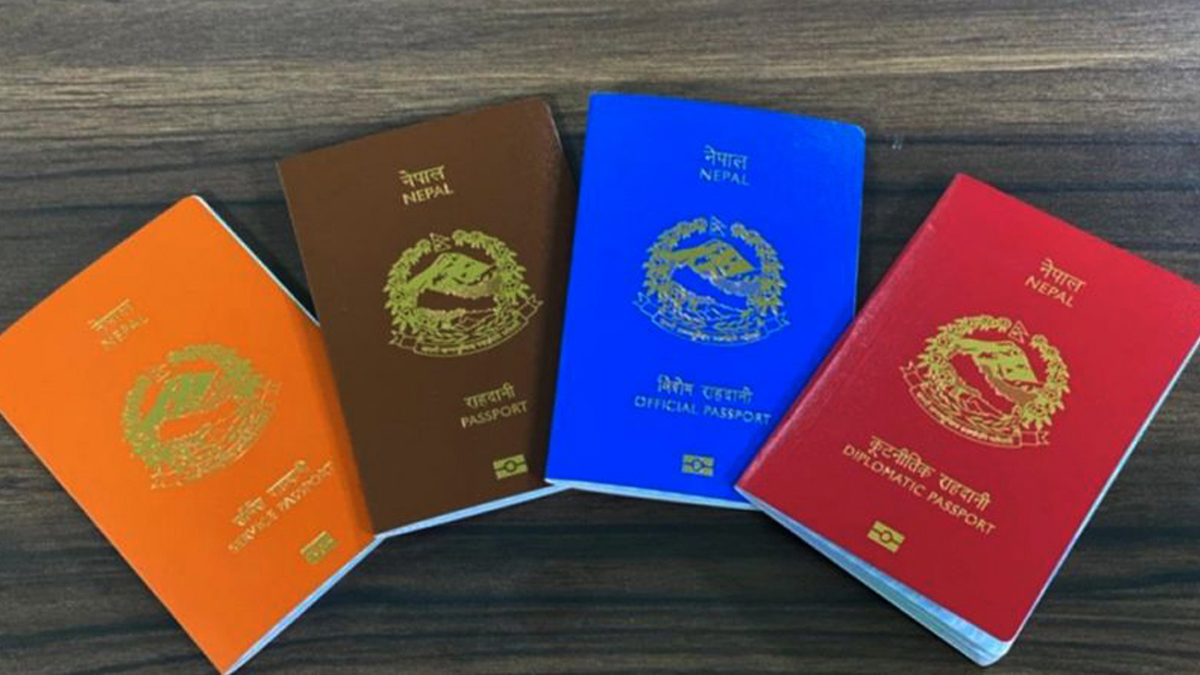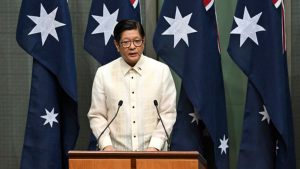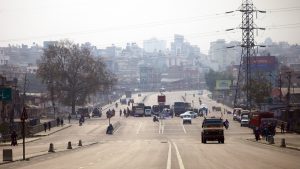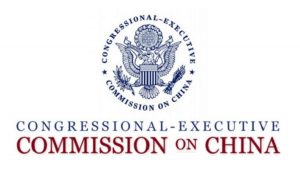
Nepal’s Passport Woes: A Struggle for Global Recognition in 2024

As Nepal ushers in the year 2024, a disconcerting reality persists—its passport continues to languish in global rankings. Despite a modest improvement from 2023, the Henley Passport Index places Nepal at the 98th position worldwide, marking it as the third-lowest in South Asia, trailing behind Pakistan and Afghanistan. This article delves into the factors contributing to Nepal’s passport predicament, explores its implications on the nation, and suggests potential avenues for improvement.
The Global Passport Landscape:
The Henley Passport Index, a comprehensive gauge of travel freedom for ordinary passport holders, sheds light on Nepal’s standing. Notably, India ranks 80th, China occupies the 62nd position, while Nepal finds itself at 98th. Regional comparisons further reveal Bhutan at 87th, Maldives at 58th, Sri Lanka at 96th, and Bangladesh sharing the 98th spot with Nepal. The lowest rungs are occupied by Pakistan at 101st and Afghanistan at 104th.
Reasons Behind Nepal’s Passport Woes:
Despite being a democracy with political stability and no recent involvement in large-scale criminal or terrorist activities, Nepal’s passport struggles persist. The Henley Passport Index relies on data from the International Air Transport Association and Henley and Partners Research Department. Experts point to multiple factors contributing to Nepal’s poor passport ranking, including a propensity among its citizens to violate visa regulations.
Nischal Nath Pandey, the director of the Centre for South Asian Studies (CSAS), highlights the passport’s impact on the diaspora, stating, “Our weak passport is becoming one of the reasons why young Nepalis are leaving Nepal and getting permanent residency in other countries.”
Overstaying visit visas and violations of visa regulations compound the problem, further restricting the countries willing to grant on-arrival visas to Nepali citizens. Pandey notes the embarrassment associated with the consistently low ranking and calls for urgent governmental measures to address the issue.
Historical Perspective:
Reviewing the historical trajectory of Nepal’s passport ranking reveals a concerning trend. In 2021, the nation hit a historic low at 110th, marking a decline from 105th in 2015. Subsequent years witnessed fluctuations, with the passport slipping to 106th in 2022. The Henley Passport Index updates monthly, encompassing 199 passports and 227 travel destinations.
Implications on International Travel:
The strength of a passport correlates with the number of visa-free destinations it provides access to. While countries in the top position offer their citizens access to 194 visa-free destinations, holders of the Afghan passport, the lowest-ranked, can only access 28 such destinations. As of January 2024, Nepali passport holders can travel to 56 countries without a visa or by obtaining an eVisa/visa on arrival, ranking 186th globally.
Governmental Inaction and Diplomatic Misuse:
Experts attribute Nepal’s passport woes to successive governments’ failure to address underlying issues. Pandey emphasizes the misuse of diplomatic passports by politicians as a factor eroding the passport’s credibility. He urges the formation of a high-level inter-ministry task force to study and recommend ways to enhance the passport’s global standing.
Multiple Perspectives on Passport Strength:
While Henley Passport Index places Nepal at 98th, another ranking by Passportindex.org positions it at 86th. This discrepancy underscores the complexity of evaluating passport strength. Nepali citizens enjoy on-arrival visas in 40 countries, but they require visas for 143 countries. Most countries offering on-arrival visas to Nepalis are in Asia and Africa.
Foreign Ministry Insights:
A senior foreign ministry official highlights various reasons behind Nepal’s weakened passport strength, including misuse, visa overstay, asylum-seeking, illegal migration, and the use of forged documents by Nepali nationals. The official contends that strengthening the passport is intricately linked to the country’s economic condition, international image, and the adherence of Nepalis to visa rules abroad.
Amrit Rai, foreign ministry spokesperson, underscores the economic dimension, stating, “The strength or weakness of a passport is directly linked to a country’s economic clout, its international standing and the number of countries that allow our citizens entry without a visa.”
Conclusion:
As Nepal grapples with the persistent challenges surrounding its passport strength, the need for proactive measures becomes increasingly evident. Governmental commitment to addressing visa violations, misuse of diplomatic passports, and fostering international goodwill are imperative for elevating Nepal’s passport ranking. The nation’s youth, seeking better opportunities abroad, underscore the urgency of this matter. In the ever-evolving landscape of global relations, Nepal must navigate its diplomatic course adeptly to secure a more favorable standing for its citizens on the international stage.














Comments